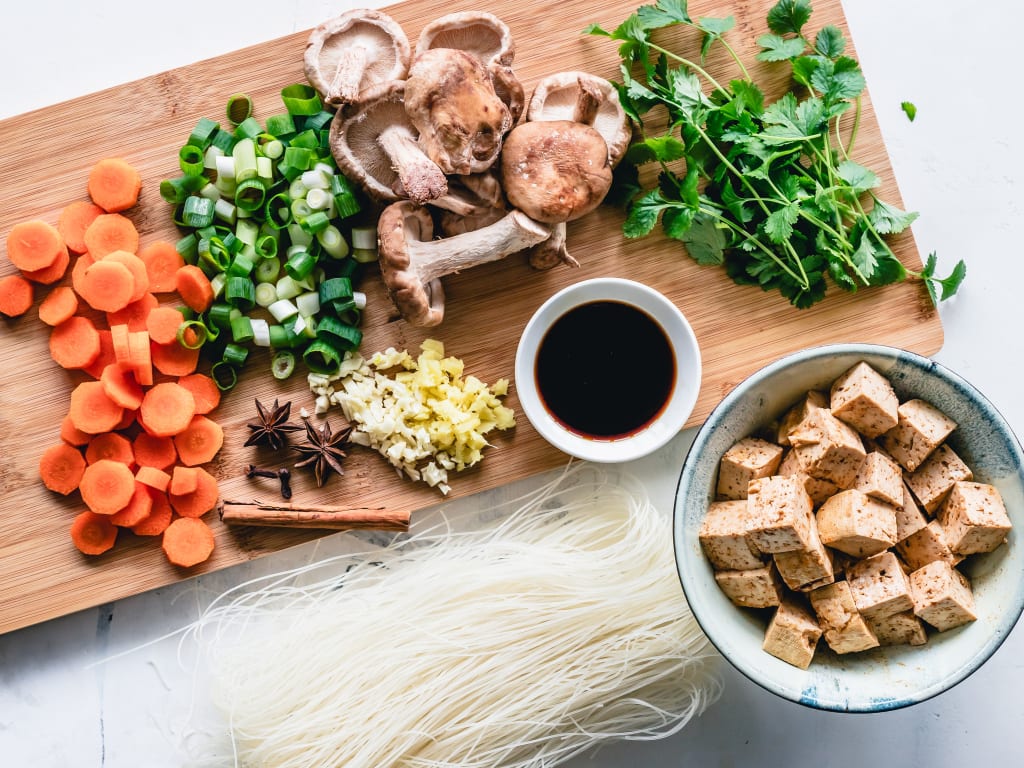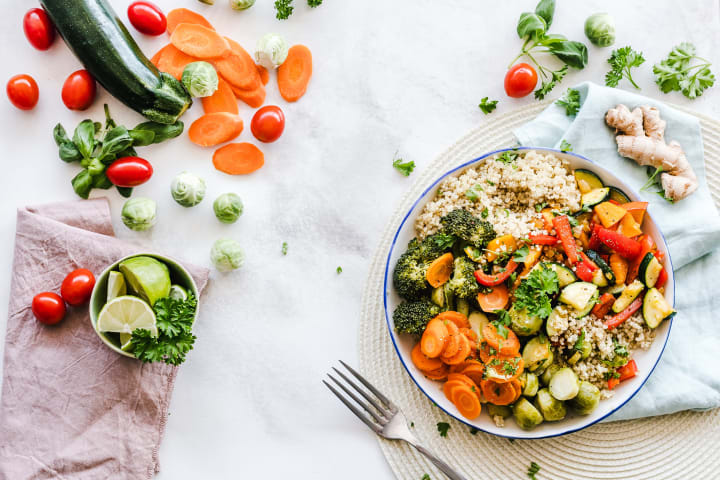Achieving Optimal Nutrition & A Guide to Healthy Eating
Healthy nutrition

A healthy lifestyle is built on a foundation of good nutrition. A balanced diet raises energy levels, stimulates the immune system, lowers the risk of chronic diseases, and ensures that your body gets the vital nutrients it needs to function effectively. In this post, we'll examine the fundamentals of a healthy diet and offer helpful advice so that you may choose your food wisely.
Balance and Variety
Balance and variety are key components of a balanced diet. Fruits, vegetables, whole grains, lean meats, and healthy fats should all be included in your diet. Each food category provides a special selection of vitamins, minerals, and other nutrients that support your general health. Make sure you choose a variety of foods from each group to ensure you get a variety of nutrients.
Consume foods that are high in nutrients compared to their calorie level, or those that are nutrient-dense. Nutrient-dense foods include fresh fruits, vegetables, legumes, whole grains, lean meats, fish, nuts, and seeds. While being lower in added sugars, harmful fats, and sodium, these foods are high in vitamins, minerals, fiber, and antioxidants.
Portion Control
In order to maintain a healthy weight and avoid overeating, portion control is essential. Consider your portion sizes and pay attention to your body's signals of hunger and fullness. Use smaller dishes and plates to help you control your portion sizes. Include a range of vibrant fruits and vegetables in your meals because they often have less calories and more fiber than other foods, which will keep you feeling filled for longer.
Hydration
Water is necessary for good health in general. Drink a lot of water all day long to stay appropriately hydrated. It is a calorie-free beverage that enhances nutritional absorption, aids in digestion, and helps maintain body temperature. Limit your intake of sugary beverages like sodas and juices since they include extra calories, which can cause weight gain and other health problems.
Minimize Processed Foods and Added Sugars
Processed foods, such as packaged snacks, sweet cereals, and fast meals, frequently include a lot of sodium, harmful fats, and added sugars. When ingested in excess, these nutrients might be harmful to your health. When possible, choose entire, unprocessed meals. To avoid added sugars, read product labels and ingredient lists to identify them and make healthy substitutions.
The quest for ideal nutrition lasts a lifetime. You can make considerable strides toward enhancing your general health by adopting a balanced and diverse diet, putting an emphasis on nutrient-dense foods, exercising portion control, drinking plenty of water, and avoiding processed foods and added sugars. Always seek tailored advice from a trained dietician or healthcare provider based on your unique dietary needs and objectives. Adopt a healthy food regimen and make decisions that will long-term nourish your body and promote your well-being.

Oatmeal: A bowl of oatmeal topped with fresh fruits, nuts, and a drizzle of honey or maple syrup is a great choice. Oatmeal is rich in fiber, which can help you feel full and satisfied throughout the morning.
Greek yogurt: Greek yogurt is high in protein and calcium. Pair it with fresh berries, a sprinkle of granola or nuts, and a drizzle of honey for added flavor and nutrients.
Eggs: Eggs are a great source of protein and healthy fats. You can enjoy them boiled, poached, scrambled, or in an omelet. Include some vegetables like spinach, peppers, or mushrooms for added nutritional value.
Whole grain toast or bread: Opt for whole grain bread instead of refined grains for added fiber and nutrients. Top it with avocado, sliced tomatoes, or nut butter for a healthy and filling breakfast.
Smoothies: Blend together a combination of fruits, vegetables, Greek yogurt, and a liquid base like almond milk or coconut water to make a nutritious smoothie. You can also add protein powder or a handful of nuts for extra protein and healthy fats.
Chia seed pudding: Mix chia seeds with your choice of milk (dairy or plant-based) and let it sit overnight to form a pudding-like consistency. Top it with fruits, nuts, or granola for added texture and flavor.
Remember, a healthy breakfast should be balanced and include a variety of nutrients. It's also important to listen to your body and choose foods that work best for you and your dietary needs.






Comments
There are no comments for this story
Be the first to respond and start the conversation.